50 Poetry Writing Prompts to Inspire Your Creative Journey
Unlock Your Poetic Voice: Powerful Writing Prompts for Beginners and Seasoned Writers
In a world dominated by rapid communication and digital noise, poetry remains a vital art form that distills human experience into its most essential elements. Poetry gives voice to our deepest emotions, challenges perspectives, preserves cultural wisdom, and creates moments of connection in an increasingly fragmented society. Whether as personal expression or social commentary, poetry continues to matter profoundly in our modern world.
Every writer—from celebrated poets to casual journalers—encounters creative roadblocks. What begins as a momentary pause can transform into paralyzing writer’s block, or sometimes it’s merely a brief interruption in your creative flow. If these symptoms sound familiar, you’re not alone, and the solution might be simpler than you think.
The most effective strategy to overcome creative stagnation is surprisingly straightforward: just start writing. When you can’t progress on your work-in-progress, engaging with a thoughtfully crafted prompt can reignite your creative spark. This practice helps you build momentum before creative inertia takes hold—prevention rather than cure.
What Makes This Collection of Poetry Prompts Unique?
Unlike generic writing exercises, this carefully curated collection of 50 poetry prompts offers something truly distinctive:
- Diverse Inspirational Sources: These prompts draw from everyday experiences, emotional landscapes, creative techniques, and imaginative scenarios that push you beyond conventional thinking.
- Comprehensive Development Guidance: Rather than vague suggestions, these prompts include detailed directions for exploration, specific techniques to experiment with, and thoughtful questions to deepen your approach.
- Balances Structure with Freedom: The prompts provide enough structure to overcome the intimidation of the blank page while leaving ample room for your unique voice and perspective to emerge.
- Addresses Multiple Dimensions of Craft: From emotional excavation to formal experimentation, these prompts touch on every aspect of poetic composition—imagery, metaphor, form, voice, and emotional truth.
- Designed for Writer Development: Each prompt intentionally builds specific writing muscles, helping you develop versatility and expand your poetic range with every exercise.
As a practicing poet who intimately understands the frustration of creative drought, I’ve designed these prompts to provide the gentle nudge that writers often need. Whether you’re crafting your first poem or your five-hundredth, these exercises will guide you toward fresh inspiration and help you discover new facets of your writing voice.
Let these 50 prompts serve as doorways to unexplored creative territories. Your next powerful poem awaits.
Why Poetry Matters in Today’s World
In our fast-paced, digitally saturated world, poetry remains a vital art form with unique power and relevance. Poetry distills complex human experiences into their essence, allowing us to process emotions that might otherwise remain tangled and undefined. When we read a poem that perfectly captures grief, joy, or confusion, we feel less alone in our experiences.
Poetry also serves as a form of resistance and remembrance. Throughout history, in times of political upheaval and social change, poets have preserved truths that might otherwise be forgotten. From Langston Hughes documenting the Black experience in America to Pablo Neruda recording the struggles of working people, poets bear witness to their times.
On a personal level, writing poetry develops crucial skills that extend beyond the page. It teaches precision with language, careful observation, and the ability to make unexpected connections—qualities valuable in any field. The practice of poetry writing encourages us to slow down and pay attention in a culture that increasingly demands speed and superficial engagement.
Perhaps most importantly, poetry reminds us of our shared humanity. In a world often divided by politics, geography, and ideology, poems build bridges of understanding. They invite us to see the world through another’s eyes, even if just for a moment, fostering empathy in an age that sorely needs it.
Whether scribbled in private journals or shared on global platforms, poetry continues to matter because it speaks to what makes us human.
Poetry Writing Prompts – Categories
- Emotional Exploration
- Relationships & Connection
- Poetic Techniques & Formal Experiments
- Sensory & Observational
- Metaphorical & Fantastical
- Perspective & Transformation
- Mortality & Profound Moments
- Social & Political
The Prompts:
Emotional Exploration
The Lost and Alone
Write about the feeling you had the first time you felt truly helpless. Explore the physical sensations that accompanied this emotion—did your throat tighten? Did your hands shake? Describe the setting where this occurred, and how the world looked different through the lens of helplessness. Consider ending with a reflection on what this experience taught you about vulnerability.
The Sad
Explore your most heartbreaking personal experience, approaching grief through unexpected angles. Rather than direct emotional statements, use concrete objects, settings, or sensory details as vehicles for expressing loss. Consider how the ordinary world transforms when viewed through sorrow, and how the experience changed your perception permanently.
The Good Day
Capture your happiest day in poetic form, focusing on precise moments rather than general feelings. Document the sequence of events, unexpected turns, and seemingly minor details that combined to create perfect happiness. Consider framing the poem as a preserved specimen—a perfect day cataloged and saved for future reference.
Wrong Way
Write about a time you argued passionately for something only to discover you were completely wrong. Explore the emotional journey from certainty through doubt to humility. Include specific details about the argument itself—what evidence seemed so convincing? What finally convinced you otherwise? End with a reflection on how this experience changed you.
The I Hate
Choose something you genuinely dislike (a food, activity, social custom) and write a poem detailing your antipathy. Be specific about what fuels your dislike, using concrete sensory details and particular examples. Perhaps end by considering what your aversion reveals about you, or by reluctantly acknowledging some hidden virtue in what you despise.
Emotion Being
Imagine meeting your worst-controlled emotion (anger, jealousy, fear) personified as a stranger at a bar. Describe their appearance, mannerisms, what they drink, how they speak. Develop a dialogue between yourself and this emotion-person, perhaps negotiating a new relationship or understanding. What would you say if you could speak directly to your deepest feelings?
The Fight
Write about a significant argument you had with someone important to you. Rather than simply recounting the disagreement, explore the subtext—the unspoken fears, old wounds, and hidden needs that fueled the conflict. Consider using structural elements like alternating perspectives or fractured lines to reflect the breakdown in communication.
No, See
Begin your poem by revealing something you’ve been afraid for others to discover about you. Use this confession as a gateway to explore themes of privacy, shame, and self-acceptance. Consider structuring the poem as a gradually deepening revelation, perhaps ending with a transformation of shame into pride or at least acceptance.
Relationships & Connection
The Love Poem
Start by writing a love poem that is 100% honest—include all the small complaints and frustrations. Then pivot to explain how these imperfections are precisely what makes your love authentic and enduring. Describe specific moments when their quirks made you smile despite yourself. How does accepting imperfection deepen connection?
A Recipe for Disaster
Write a poem structured as a recipe for a significant relationship in your life. Include precise measurements (“2 cups of compromise”), cooking techniques (“simmer disagreements over low heat”), and timing instructions (“let trust develop for 3 years”). Consider the ingredients that led to both sweet and bitter outcomes. End with serving suggestions that reveal deeper emotional truths.
The Love Text
Create a poem composed entirely of text messages between lovers. Capture the rhythms of digital communication—abbreviations, timestamps, delayed responses, emoji (described rather than shown). Develop an emotional narrative that unfolds through these exchanges, revealing what remains unsaid between the messages.
No Return Address
Write a love poem addressed to an inanimate object you depend on (phone, car, coffee maker). Imagine this object secretly returns your affection. Explore the absurdity of this one-sided relationship while acknowledging genuine feelings of attachment. Consider how we project emotion onto objects and what this reveals about human connection.
The Mother
Create a poem imagining how people in heaven or an afterlife might treat your mother (or another significant figure). What would they appreciate about her that perhaps goes unrecognized on earth? Include specific details about her character, gestures, and values. This could be reverential or playful, depending on your relationship.
Used to Know
Address a poem to someone who was once important in your life but with whom you’ve lost contact. Focus on specific memories and shared experiences rather than general reminiscence. Consider questions you would ask them now, things you wish you had said, how you imagine their life has unfolded. End with either closure or an opening toward possible reconnection.
Poetic Techniques & Formal Experiments (continued)
Short Short
Craft a poem of exactly 5 lines that captures an “Ah-Ha” moment—an instant of profound realization or sudden clarity. Make every word count. Consider using a moment of everyday revelation, like understanding someone’s true nature or recognizing a pattern in your own behavior. The brevity should heighten the impact.
Haiku
Write a haiku (5-7-5 syllables) that begins with a vivid natural image and ends with a subtle lie. The contrast between truth and deception should create tension within this brief form. The lie might be about yourself, about nature, or about human experience. Consider how this tension fits within the traditional haiku emphasis on season and nature.
Free Write
Write 20 lines of poetry intentionally designed not to connect logically. Jump from image to image, thought to thought, with deliberate discontinuity. After completing this exercise, read it through—what unexpected connections emerged despite your intentions? Consider keeping the lines that surprise you and developing them into a separate poem.
The First Line
Borrow the first line from your favorite poem (for example, “I wandered lonely as a cloud” or “Because I could not stop for Death”) and incorporate it somewhere in your own poem. Build a completely different theme and emotional landscape around this borrowed line. Consider how its original context influences your new creation.
The Copy
Select a favorite poem and mimic its exact structure, rhyme scheme (if any), line length, and cadence—but change the subject matter completely. For example, if the original is about love, make yours about technology; if about nature, make yours about urban life. This exercise in form reveals how structure shapes content in unexpected ways.
The Challenge
Choose a traditional poetic form (sonnet, villanelle, sestina) and use its strict structure to contain a wild or difficult emotional experience. The tension between formal constraints and raw feeling creates powerful poetry. Research the form thoroughly before beginning, understanding how its particular patterns can enhance your subject matter.
The Short Stack
Write a memoir in exactly 10 words. Make each word carry maximum significance, selecting precise, evocative terms that suggest a complete life story. You might focus on pivotal moments, core values, or recurring patterns. This extreme brevity forces distillation of experience to its most essential elements, revealing what truly matters.
Sensory & Observational
Image Start
Select a famous painting (perhaps Nighthawks by Edward Hopper or Starry Night by Van Gogh) and write a poem that tells the story of the scene coming to life. What happens when the figures step outside the frame? What conversations might unfold? What sounds and smells emerge when the static image becomes dynamic?
The Camera
Make your pen a camera as you visit a location rich with sensory details. Write with cinematic precision, capturing colors, textures, movements, and light with language that feels immediate and visual. Begin with a wide-angle perspective, then zoom in on increasingly small details before pulling back again for a concluding shot.
The Go-To
Visit a public space teeming with life—a café, airport, train station—and collect fragments of overheard conversation. Weave these authentic human utterances into a poem that tells a story larger than any individual speaker intended. Consider the emotional throughline these disconnected phrases create when assembled together. How do strangers unknowingly collaborate?
The Universal
Craft a poem about the ritual of preparing and consuming coffee or tea. Use this universal experience to explore larger themes—human connection, solitude, contemplation, cultural traditions. Focus on the sensory experiences: the warmth of the cup, the rising steam, the transformation from alertness to calm or vice versa.
Music Inspires
Listen to a genre of music you rarely experience (classical if you prefer rock, jazz if you prefer country, etc.). Close your eyes for 5-10 minutes of uninterrupted listening, noting the words and feelings that arise. Write a poem that doesn’t describe the music directly but captures the emotional journey it took you on.
The Place You Love
Craft a poem about a landscape that has special significance for you—the sea, mountains, desert, or a specific location tied to memory. Beyond physical description, explore how this place has shaped your identity or provided sanctuary. Include multi-sensory details: the particular quality of light, characteristic sounds, textures, and scents that define this beloved geography.
Metaphorical & Fantastical
Magical Real
Write a poem where the images you create begin to rebel against you, the poet. Perhaps the ocean wave you described crashes onto your desk, or the bird you mentioned builds a nest in your hair. Explore the consequences of your imagination becoming too powerful. How do you, as the writer, regain control—or do you surrender to the chaos?
The Circus
Choose an element from a circus (tightrope walker, ringmaster, lion tamer, clown) and develop it as an extended metaphor for a contemporary profession or social role. Explore how the spectacle, danger, or performance aspects of circus arts parallel modern life. Consider both the public performance and what happens behind the curtain.
The Tiger
Inspired by Blake’s famous poem, write about an encounter with a creature—real or mythical—that terrifies you. Explore the beauty in what frightens you. Focus on specific physical details that inspire both awe and fear. The poem might delve into the relationship between danger and fascination, or how fear reveals our most primal selves.
The Small Child
Personify hope as a small boy or girl who faces daily bullying yet persists. Develop concrete scenes showing this child-hope being knocked down and standing up again. What does this child carry for protection? Who are their allies? The poem explores resilience through this extended metaphor, revealing how hope survives despite continuous challenges.
The Monster
Create a poem featuring a traditional monster (vampire, werewolf, demon) as the protagonist and hero. Explore how their monstrous qualities might be reframed as strengths or necessary adaptations. Develop their interior life beyond stereotype. Consider how they navigate a world that considers them a threat, perhaps finding purpose in unexpected places.
The Outer Space
Project yourself 100 years into the future and write from the perspective of someone living among the stars. Consider how human concerns might transform in this context. What Earth-bound problems would become irrelevant? What new challenges would emerge? Include specific technological details balanced with enduring emotional experiences.
The Ghost
Write a poem about being awakened by a ghost who needs your assistance. Develop this spectral character with specific details—how they move, sound, their era of origin, and the nature of their unfinished business. Explore your reluctance and eventual agreement to help. The ghost might represent unresolved aspects of your own life or actual historical injustices.
Specific Ending
Craft a poem about a zombie apocalypse that transcends the horror clichés to explore deeper themes—perhaps societal breakdown, human resilience, or unexpected beauty amid devastation. Focus on specific, sensory-rich scenes rather than general chaos. Consider an unexpected perspective, such as a zombie gradually regaining consciousness or memory.
The Quest
Structure a poem as a medieval quest narrative, with yourself as the knight seeking something missing from your life (purpose, creativity, love, peace). Include classic quest elements—obstacles, helpers, false leads, tests of character—while maintaining a connection to your actual circumstances. End with either finding your grail or recognizing the value of the journey itself.
Perspective & Transformation
The Lie
Compose a poem where the speaker is clearly lying to themselves. Layer this self-deception throughout—perhaps they’re convincing themselves they’re over a relationship, satisfied with a job, or not afraid of change. Drop subtle clues for the reader to understand the truth beneath the denial. End with either continued delusion or the beginning of self-awareness.
The Goodbye
Craft a farewell poem to your former self. Acknowledge specific traits, beliefs, habits, or relationships you’ve outgrown. Include concrete details about this past identity—how you dressed, favorite phrases, characteristic gestures. End with a recognition of what you’ve preserved from this earlier version of yourself.
Flying
Write a poem about hovering high above your life, observing its patterns from a great height. What geometries, repetitions, or connections become visible from this perspective that remain hidden at ground level? Include both physical details (the layout of your neighborhood, daily routes) and emotional landscapes. Consider how this elevated viewpoint transforms your understanding of your own journey.
The Writer
Write a meta-poem about the act of writing poetry itself. Explore your relationship with language, the struggle to find the right words, the moments when writing flows effortlessly and when it feels impossible. Consider using metaphors that capture the physicality of writing as well as its intellectual and emotional dimensions.
The Lament
Create a poem that serves as a plea for personal change. Identify a specific aspect of your life you wish to transform—a relationship pattern, professional situation, or inner struggle. Structure the poem as an increasingly urgent appeal, perhaps addressing yourself, a higher power, or even the abstract concept (like “Fear” or “Hesitation”) that you wish to overcome.
The Time Traveler
Address a poem to a past generation, asking them not to make a specific historical mistake. Write with the intimate knowledge of consequences that hindsight provides. Balance judgment with empathy, recognizing the limitations of their knowledge while conveying the urgency of your request. End with hope for an alternative timeline.
Mortality & Profound Moments
Last Sunset
Write a poem about the last sunset you will ever see. Without being explicitly morbid, explore the beauty in finality. What details would you notice if you knew this was your final experience of dusk? What previously overlooked elements would suddenly seem significant? Consider how awareness of an ending transforms perception.
The Fly Buzz
In homage to Emily Dickinson, write a poem about the last thing you might see or hear before death. Focus on a small, seemingly insignificant detail that becomes profound in final moments. Explore how ordinary perceptions might transform when experienced for the last time. How might all senses heighten in those concluding instants?
The Quiet
Write a poem gentle enough to be whispered to someone sleeping beside you. Use soft sounds (avoid harsh consonants), and create an intimate atmosphere through close observation and tender address. Consider themes of protection, shared vulnerability, or secrets revealed only in darkness. The tone might be comforting, confessional, or contemplative.
Social & Political
The Call to Action
Choose a contemporary social or environmental issue you care deeply about and transform it into a persuasive poem. Without being didactic, use vivid imagery and emotional appeals to inspire action. Consider incorporating factual elements while maintaining poetic language. The poem should build toward a clear, compelling call for specific change.
Thank You for Reading
Thank you for exploring these 50 poetry prompts. We hope they inspire your creative writing journey and help you overcome any moments of writer’s block you might encounter.
Poetry remains one of humanity’s most powerful forms of expression. In just a few carefully chosen words, a poem can capture complex emotions, challenge perspectives, and create profound connections between people. In our fast-paced world, poetry invites us to slow down, observe deeply, and find meaning in both ordinary and extraordinary experiences. Each poem you write contributes to this tradition and has the potential to touch someone’s life in ways you might never imagine.
We’d love to hear how these prompts work for you. Please leave a comment below sharing which ones sparked your creativity or how your writing practice has benefited from these exercises. Your feedback helps us create better resources for the writing community.
Good luck with your writing! Remember, the world needs your unique voice and perspective.
- 100 Screenwriting Ideas to Get You Writing - January 20, 2026
- 100 Winter Storm Writing Prompts - January 17, 2026
- 100 Haunted House Story Starters: Craft Your Scariest Tale Yet - January 10, 2026
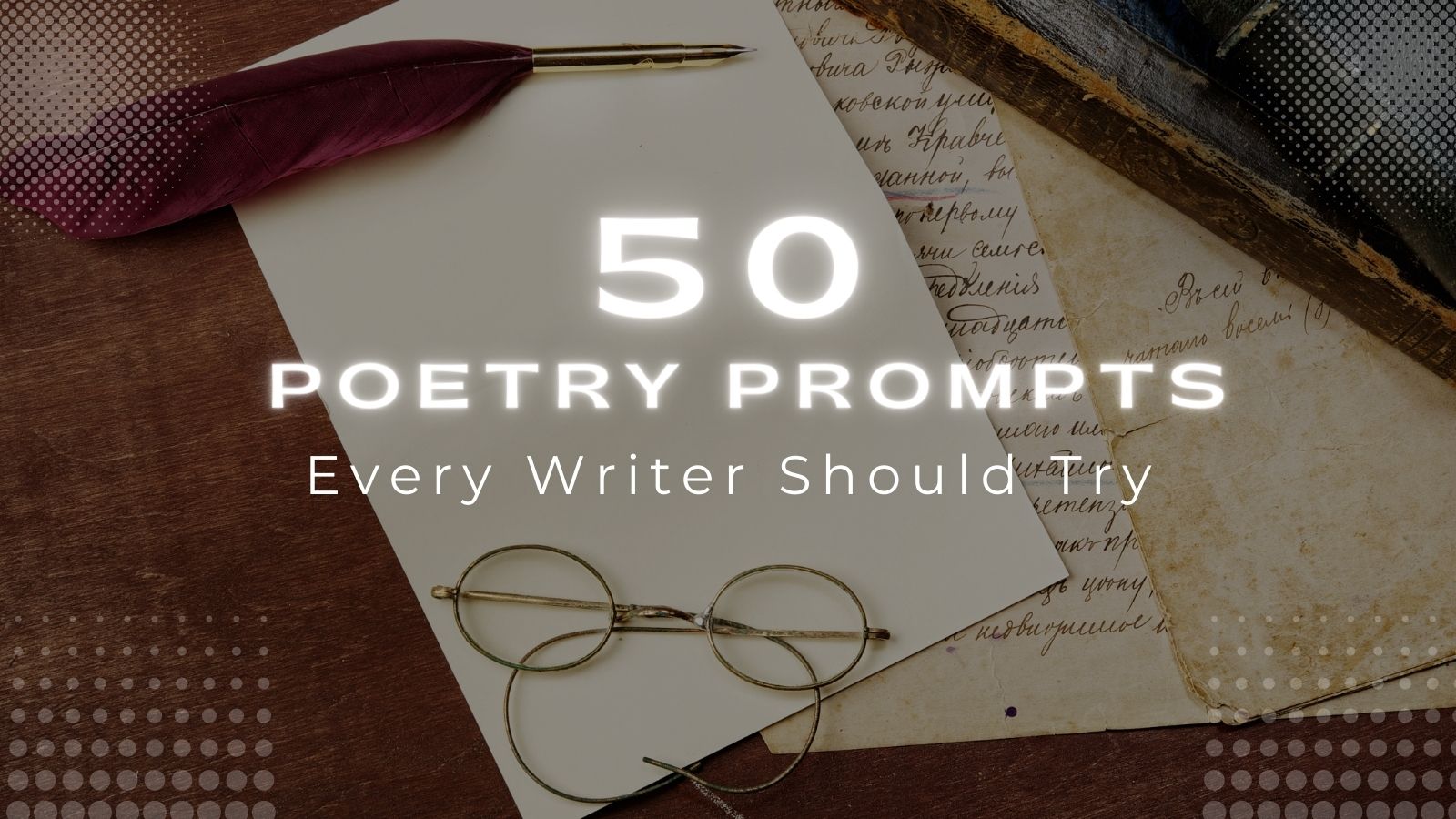
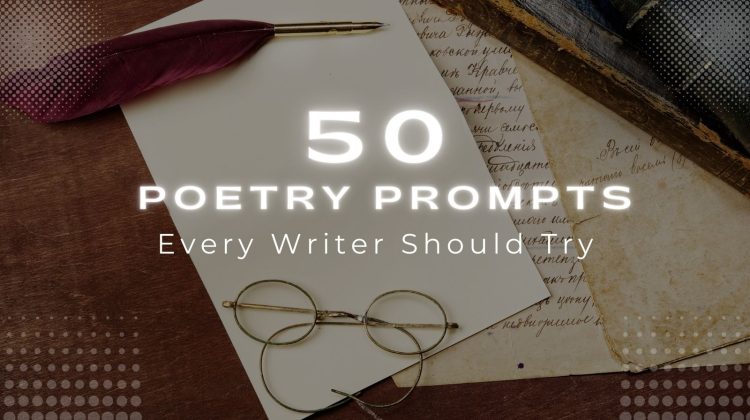

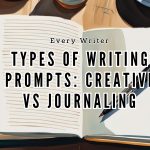
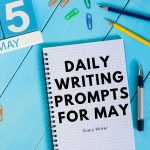
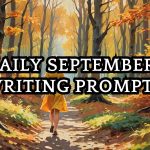
What a wealth of poetry prompts!! TNX, I want to stop doing anything mundane, like food shopping (not really) to spend my days using them.
I have a very complicated life, so can’t always concentrate on new poems. I’m happy when I deliver one (as a performance poet) that makes a hit. Gotta stop griping abt being too busy. This volume of info, sent by the leader of a POETRY workshop will put a fire under me. I write this note as a literary Chatty Cathy. Can’t help going on and on.
It’s us know where you are preforming! Also, chatter all you want. I read everything, sorry it took me so long to reply. I love hear about poetry. Also, send me your work, I’ll consider publishing it. everywriterx@gmail.com
You want more ?? :>)) old lady dbl chin smiley. Gloria